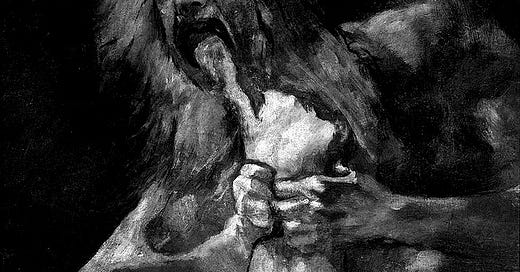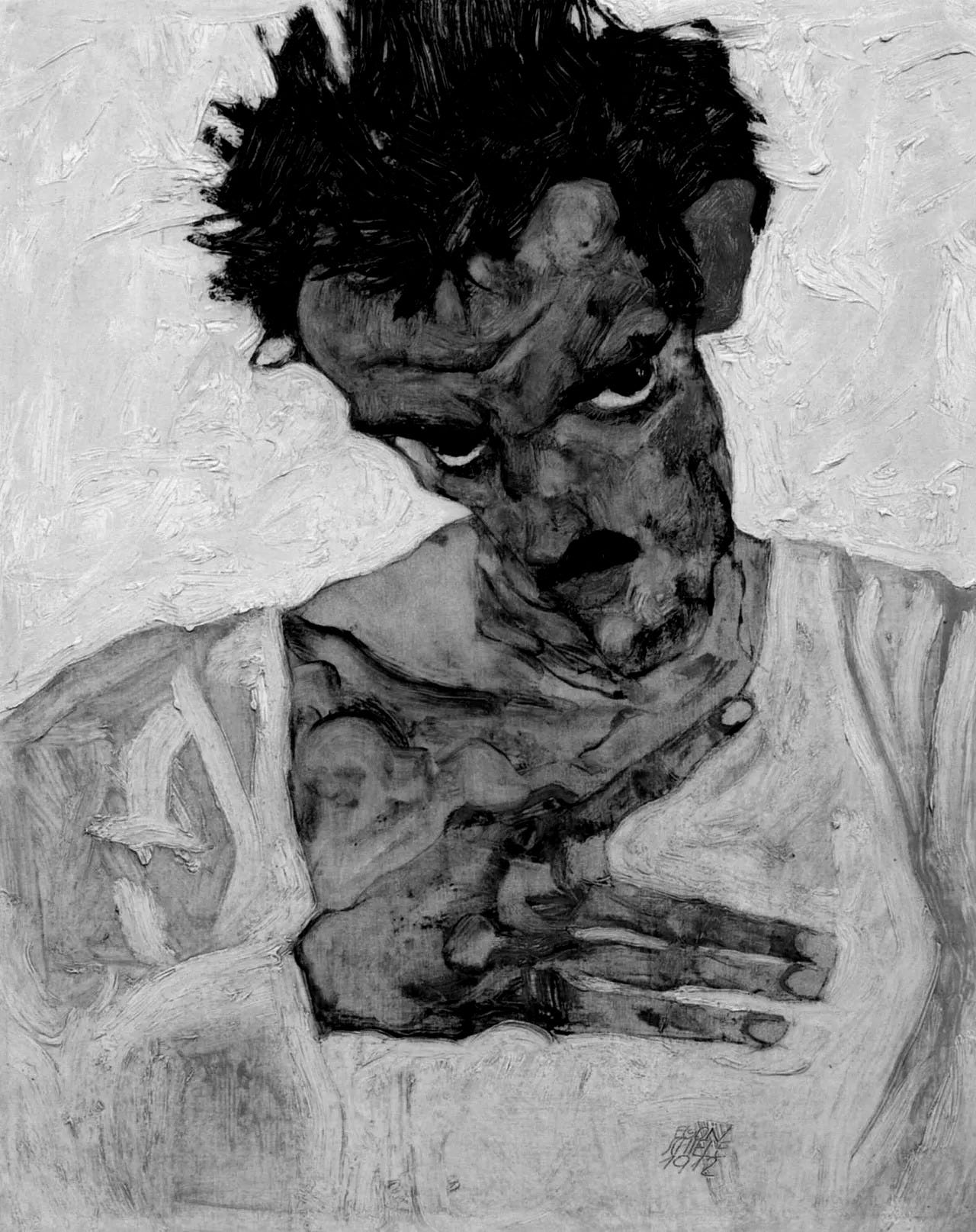“It’s inside myself that I must create someone who will understand.”
Clarice Lispector
When I was a kid, a mother in the neighbourhood told the other kids that I ate human meat on account of my ethnicity.
From then on, no one wanted to play with me.
I didn’t really understand what was going on, not until much later in my life at least. I was just a boy. All I knew was that there was one of me and a whole lot more of them. Evolutionary bias and simple mathematics suggested that I was outnumbered.
Funny enough, the mother’s son was a child I would spend quite a lot of time with. Looking back, it was beautiful to see two children who’d formed a friendship beyond the ethnic divides ravaging their region. It was beautiful until one day it simply wasn’t. He no longer wanted to be my friend. We spoke about it in a single conversation by the local pool of the community we both lived in. We sat side to side on a sun-beaten plastic lounge chair, flattened out to make space for the both of us. He just looked down at his feet the entire time, pushing around astroturf bits with his split-toe sandals while the fringe of his bowl cut flattered in the hot desert wind. He said that his mother didn’t want to see him hang out with me because my kind ate human meat. It wasn’t true, just to clear that up. It also didn’t matter what was true. Fighting it just kind of made me sound even more suspicious.
So that was pretty much the end of that.
I’m not sure why, but I’d chosen not to share this rumoured diet with my mother until later in life. Perhaps I didn’t want her to cause a scene and make things worse for my already dwindling social repertoire. Maybe I didn’t want the adult moms to stop talking to her too. I don’t know, I don’t think of it much. Life just carried on anyway. I’d often be encouraged to go out and play with the other kids, to which I had no objection. I liked people and I liked being outside. I had my own group of friends in school that kept me occupied five days a week, just not so much in the neighbourhood where I lived, for reasons I knew, but couldn’t quite explain.
So weird.
How relative is trauma anyway?
Is this even trauma?
I feel like I’m genetically engineered to repel the terminology whenever it applies to me, though I have no issue accepting it from others.
The Eastern paradox.
Everything is fine until it’s happening to you.
Even twenty-odd years later, I close my eyes and can feel the sun on the back of my neck just the way it was that very day. I couldn’t tell you what my house number was at the time, but I could sure as hell remember the mother’s voice. I can’t remember the name of my first pet, nor the second or even third, but I still remember her son’s name. We seem to retain a whole lot of information if we deem it to be important.
Young, but old enough to remember.
Not everything, only the details worth remembering.
I remember going to a therapist for the first time at 24 years old. In the heyday of my lovelessness, I was admittedly far more motivated by the desire to emulate maturity to a partner who was anything but that, rather than take an intentional step to meet myself. I secretly saw trauma as a blanket statement people generously used to liberate themselves from responsibility. I still partly think that way. Can you blame me?
We seem so lost in identity politics and victimhood that it almost seems unkind not to participate. My first adult relationship and therapist did very little to dispel my preconceptions, even more so because I had first-hand access to what real suffering looked like. Countless friends and family were much younger than me in age but much older in wisdom. All that aside, therapy did one thing that changed my life. It posed me with a single question that carried the weight of the world with it.
I had just finished my weekly monologue to my therapist on how I felt like I had things together, but it just never felt enough. I was socially liked, a hard worker, and was on the verge of a job breakthrough. I had a relationship, not one I could comfortably say I felt loved in, but it was amicable enough I guess. My family was proud of me, proud enough I guess, but none of that mattered to the therapist, who in a demonstration of perfect training would brush off my accolades with a sterile kindness and respond:
You’re a good employee.
You’re a good friend.
You’re a good son.
You’re a good brother.
You’re a good partner.
But who are you?
I didn’t even understand what the question meant. I just told him who I was. I was all of those things, and then some. I exercised every week and treated everyone with kindness. I smiled at passersby who wore a thousand-yard stare of urban exhaustion and I never once complained if the food served was not what I craved. My plans got cancelled, and I patiently accepted my fate. I listened and nodded in approval to countless rants, and wiped so many tears that her cheeks could write poems about my thumbs. I took late-night shifts and still made it to the birthday I’d rather sleep through. I shrugged off my own needs to make space for the wants of my loved ones. I don’t eat human meat for fucks sake.
So, who was I?
At 26, I now reel at the purity I previously could not see. Like most of us, I was engaged in a never-ending Halloween spectacle. Costumes and characters, lore, and alter egos. I spared no effort in seeking a validation that I couldn’t grant myself. Yet the truth is, there were never any cameras, no audience, and I’m not an actor.
One’s essence lies like a small seed under the countless layers of protective armour, waiting for the day you’ll be desperate enough to start peeling back your skin. You’ll wince and the breeze will be sharp, but the fruit is so sweet. The paradox is that you'll create a new character once you start peeling away these layers. I went from the human eater to the layer peeler, or whatever you want to call it.
It just seems like I’ll be peeling back layers for a lifetime.
I’m quite sure of that.






It’s strange how memory works, how the details of pain stay lodged in our minds with an almost photographic precision, while so many other things, the “important” things, fade. The house number, the pets’ names — gone. But the mother’s voice, the boy’s name, the heat on your skin that day? Forever etched.
It’s almost like trauma isn’t about what happens to us but what it ‘makes of’ us. Whether or not we allow it to define us is another story. And yet, the irony is that the very act of resisting definition means we’re still shaped by it. A paradox. An Eastern one, as you put it.
And then there’s that question. But who are you? How many of us answer it with a list of roles, responsibilities, and obligations? I think we all do, at some point. Maybe because admitting we don’t actually know feels like an unbearable weight — one heavier than just playing the part we think we’re supposed to.
But your words tell me you’ve already started peeling back the layers, and I wonder: does it ever really stop? Or is the self just an infinite series of masks, each one removed only to reveal another beneath it? Maybe the truth isn’t in the peeling but in learning to sit with the uncertainty of what lies underneath. Maybe it’s not about finding an answer at all.
Either way, you’re not alone in the unraveling.
I’ve come to realize why I like people who are blunt and honest. It’s because it makes me feel safe. I don’t have to peel through the layers of what are they hiding? Who are they really? I enjoyed reading your post; it made me feel safe through your honesty of sharing your story in your life.